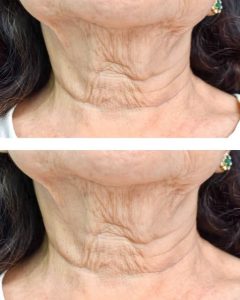
The Importance of Vitamin C for Healthy, Youthful Skin
Vitamin C is much more than just a nutrient for boosting your immune system—it plays a critical role in keeping your skin healthy, vibrant, and youthful. As one of the most powerful antioxidants, it helps protect your skin from environmental damage caused by free radicals, which are unstable molecules that contribute to aging. But perhaps its most vital function for skin health is its role in collagen production. Collagen is a protein that provides structure, elasticity, and firmness to the skin. Over time, as we age, our natural collagen production slows down, leading to wrinkles and sagging skin.
This is where vitamin C becomes essential—it supports and stimulates the production of collagen, helping to maintain your skin’s firmness and elasticity. Without sufficient vitamin C, your skin can lose its resilience, becoming dull, saggy, and more prone to wrinkles. In this article, we’ll delve into the importance of vitamin C for skin health, explore how a deficiency can impact your appearance, and offer practical tips for making sure you’re getting enough of this essential nutrient. Whether through your diet or skincare routine, ensuring that you maintain adequate levels of vitamin C is a simple yet powerful way to promote healthy, radiant skin that looks and feels its best.
How Vitamin C Helps Keep Skin Firm and Elastic
Vitamin C is vital for collagen production, which is necessary for maintaining the skin’s firmness and elasticity. Collagen acts as a framework that supports your skin, keeping it smooth and youthful. As you age, collagen production naturally declines, leading to sagging and wrinkles. Vitamin C helps stimulate collagen production, keeping your skin supple and resilient. It also supports the regeneration of vitamin E, another antioxidant that helps protect the skin from damage caused by environmental stress.
What Happens When You Don’t Get Enough Vitamin C
A lack of vitamin C can negatively affect your skin’s health. Without enough vitamin C, collagen production slows down, leading to looser skin and the formation of wrinkles. Additionally, your skin becomes less effective at repairing itself from damage caused by sun exposure and pollutants, which speeds up the aging process. Over time, this can make wrinkles more noticeable and your skin appear less youthful.
Where to Find Vitamin C in Your Diet
To make sure you’re getting enough vitamin C, include a variety of vitamin C-rich foods in your diet. Citrus fruits like oranges, lemons, and grapefruits are great sources. Other excellent options include strawberries, kiwi, bell peppers, broccoli, Brussels sprouts, and spinach. By incorporating these foods into your daily meals, you’ll help support healthy skin and prevent vitamin C deficiency.
The Benefits of Topical Vitamin C for Skin
In addition to getting vitamin C from food, you can also apply it directly to your skin through serums and creams. Topical vitamin C can brighten your complexion, reduce dark spots, and improve skin firmness. It works by neutralizing free radicals on your skin’s surface and forming a protective barrier against environmental damage. Regular use of vitamin C skincare products can help achieve a radiant, youthful look.
How Much Vitamin C Do You Need?
The recommended daily intake of vitamin C varies depending on age and gender. Adult women should aim for 75 mg per day, while adult men should aim for 90 mg. Pregnant or breastfeeding women may need more. Smokers should consume an extra 35 mg daily due to the higher oxidative stress caused by smoking. While it’s possible to meet these requirements through a balanced diet, supplements are an option if you’re not getting enough from food.
Symptoms of Vitamin C Deficiency
Vitamin C deficiency can show up in several ways, particularly through skin issues. Common symptoms include dry, rough skin, slow wound healing, and tiny red spots on the skin due to weakened blood vessels. In more severe cases, it can lead to scurvy, which causes bleeding gums, joint pain, and fatigue. If you notice any of these signs, it’s important to check your vitamin C intake and talk to a healthcare professional.
Please Head On keep on Reading (>)
